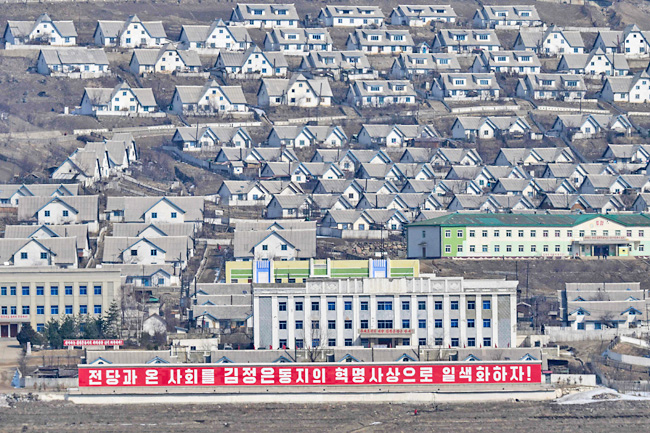HELONG (AFP) – After fleeing famine in North Korea, Kim Cheol-ok laid low in China for decades – until a doomed run for freedom got her sent back to her repressive homeland, her family said.
She is among hundreds of North Koreans repatriated in recent months, according to rights groups, which said they face imprisonment, torture and even execution back home.
Kim Cheol-ok’s family took the rare and risky decision of publicising her case after she vanished last year.
In a frantic farewell call, she “said that she would be sent back to… North Korea in two hours, and hung up”, her sister Kim Kyu-li told AFP.
Neither she nor any other relative has been able to contact her since.
Thousands of North Koreans are thought to live illegally in China’s northeastern borderlands.
Pyongyang views unsanctioned border crossings as a serious crime and is believed to hand brutal punishments to transgressors.
“In North Korea, prison is a dangerous place,” said Kim Kyu-li, who lives in London.
“A lot of people die.”
Neither China nor North Korea have officially acknowledged Kim Cheol-ok’s case.
But AFP corroborated her story via interviews with Kim Kyu-li, a lawyer campaigning for the deportees, and a source in China with knowledge of the case who spoke anonymously for fear of official reprisals.





Following the reopening of the Chinese-North Korean border, an AFP team travelled to the area. Chinese border police prevented the journalists from visiting four official crossing points, saying they needed special permits.
They included the town of Nanping, opposite the North Korean city of Musan, where Kim Cheol-ok is believed to have been repatriated.
But the reporters viewed nearby points of the frontier, where North Korean guards stood sentry in watchtowers and behind rows of sharpened sticks.
They saw North Koreans farming or lugging timber. One town appeared eerily empty, save for mournful music echoing off decrepit housing blocks.
Public notices on the Chinese side warned against communicating with North Koreans and vowed “severe punishments” for harbouring illegal migrants or smuggling.
Across the border, a giant North Korean propaganda sign looming over one settlement blared: “My country is the best!”
Kim Cheol-ok, who is about 40, crossed into China in the 1990s as North Korea endured devastating food shortages, Kim Kyu-li said.
She was sold into marriage with a much older man, had a daughter with him and spent decades in legal limbo.
After a bout of COVID-19 last year convinced her she needed legal status and healthcare, she decided to try to flee China.
“She was so sick that she couldn’t even recognise me,” Kim Kyu-li added. “She suddenly asked me to get her out,” she said.
“So I told her to wait and that I would do anything.”
Last April, Kim Kyu-li hired a broker to help Kim Cheol-ok make the 4,000-kilometre journey to Vietnam.
“Prison is a dangerous place” in North Korea, said Kim Kyu-li, whose sister disappeared while attempting to reunite with her family.
She hoped her sister would then be able to travel to South Korea, which grants citizenship to North Koreans. From there, Kim Cheol-ok would join her in Britain. But no reunion ever took place. “Usually, when they enter Vietnam, we get a call within a week from the broker saying that they’ve arrived safely,” said Kim Kyu-li. “But after 10 days, there was no news.”
Chinese police had intercepted Kim Cheol-ok and two other North Koreans within hours of leaving home, Kim Kyu-li and the anonymous source in China said.
She spent months in a high-security detention centre outside a tumbledown village near the city of Baishan in Jilin province.
Her family said they were not told if she was criminally charged, tried or sentenced. They were allowed to bring clothes and money to the centre, but could not see Kim Cheol-ok.
Then, in October, she asked a prison official for a final phone call, said Kim Kyu-li. She told her family she was being sent back to North Korea two hours later and was never heard from again. Kim Cheol-ok was among some 600 North Koreans deported from China that month, according to the Transitional Justice Working Group in South Korea.
The group estimated a further 1,100 people were being held for repatriation as of December.
AFP was unable to independently verify the figures. Calls to the facility identified by Kim Cheol Ok’s family were unanswered and officials ordered the reporters out of the surrounding area.







